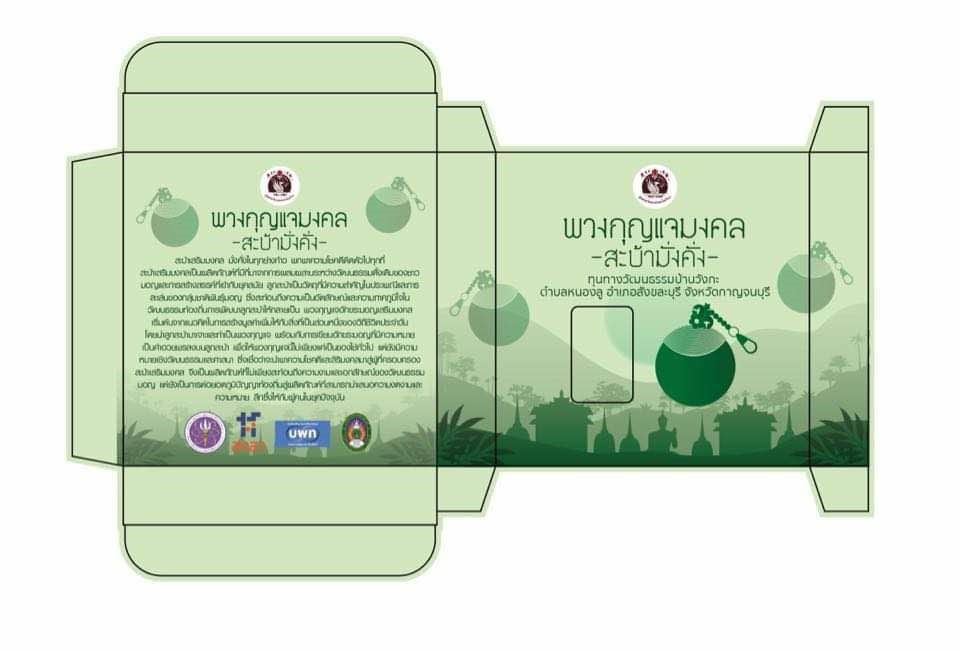Developing the Grassroots Economy through Cultural Capital: A Case Study of the Mon Ethnic Group in Ban Wang Ka, Nong Lu Subdistrict, Sangkhla Buri District, Kanchanaburi Province
Keywords:
Cultural capital, Grassroots economy, Mon community of Ban Wang Ka, Local developmentAbstract
This research aims to study the development of the grassroots economy through the utilization of cultural capital by the Mon ethnic group in Ban Wang Ka, Nong Loo Subdistrict, Sangkhla Buri District, Kanchanaburi Province. The objectives are to synthesize the cultural capital of the Ban Wang Ka community, analyze the role of cultural capital in grassroots economic development, and identify ways to use this capital to create added value and improve the quality of life of the community The research employs qualitative methods, incorporating anthropological approaches. The sample group consists of 25 individuals with knowledge and experience in the community's culture and economy. Data collection methods include in-depth interviews, focus group discussions, and on-site observation. Research tools consist of structured and semi-structured interview guides to collect comprehensive and in-depth data. Data analysis involves content analysis and thematic analysis, using triangulation to enhance the credibility of the findings
The study results reveal that the Mon ethnic group in Ban Wang Ka possesses diverse and profound cultural capital, including religious beliefs and traditional rituals such as the "Boat Floating Ceremony" for misfortune dispelling and the Mon Songkran Festival, which are held annually and play a significant role in generating income for the community. These events attract numerous tourists, both from within and outside the region, resulting in income distribution through various channels, such as entrance fees, accommodation, food and beverages, and the sale of souvenirs and local products like Mon-woven textiles, jewelry, and handicrafts Survey data indicate that the community's average income increases by approximately 30% during major cultural festivals, especially during the Songkran Festival, which attracts over 3,000 tourists annually. This leads to an economic circulation exceeding 500,000 baht per year within the community. Utilizing this cultural capital not only helps preserve and transmit the Mon identity of Ban Wang Ka but also plays a crucial role in promoting cultural tourism and fostering sustainable economic collaboration. The approach to leveraging cultural capital can effectively add value and create economic sustainability for the community, serving as an essential tool for grassroots economic development and strengthening the Mon community in Ban Wang Ka in the long term.
References
ขวัญเรือน บุญกอบแก้ว. (2562). แนวทางการปรับใช้ทุนวัฒนธรรมในการพัฒนาชุมชนบ้านวังหอน ตำบลวังอ่าง อำเภอชะอวด. วารสารมนุษยศาสตร์และสังคมศาสตร์, 10(พิเศษ), 188 – 209.
ณฤดล เผือกอำไพ. (2558). การศึกษาลึฮเติ่น ดนตรีในพิธีว่อนโวะซ่าง กลุ่มชาติพันธุ์มอญบ้านวังกะ ตำบลหนองลู อำเภอสังขละบุรี จังหวัดกาญจนบุรี. กรุงเทพฯ: กระทรวงวัฒนธรรม.
นพรัตน์ ไชยชนะ, อภิชาติ ใจอารีย์ และ ประสงค์ ตันพิชัย. (2564). กระบวนการเรียนรู้อัตลักษณ์ทางชาติพันธุ์มอญ: กรณีศึกษาบ้านวังกะ ตำบลหนองลู อำเภอสังขละบุรี จังหวัดกาญจนบุรี. วารสารมนุษยศาสตร์และสังคมศาสตร์ มหาวิทยาลัยพะเยา, 9(1), 256 – 278.
นพรัตน์ ไชยชนะ. (2562). อัตลักษณ์ทางชาติพันธุ์มอญจากรุ่นสู่รุ่น: กรณีศึกษาบ้านวังกะ ตำบลหนองลู อำเภอสังขละบุรี จังหวัดกาญจนบุรี. (วิทยานิพนธ์ปรัชญาดุษฎีบัณฑิต สาขาวิชาการพัฒนาทรัพยากรมนุษย์และชุมชน). กรุงเทพฯ: มหาวิทยาลัยเกษตรศาสตร์.
เนตรนภา วรวงษ์. (2565). อัตลักษณ์ความเป็นมอญกับประเพณีพิธีกรรมของกลุ่มชาติพันธุ์มอญที่บ้านวังกะ อำเภอสังขละบุรี จังหวัดกาญจนบุรี. (วิทยานิพนธ์อักษรศาสตรดุษฎีบัณฑิต สาขาวิชาภาษาไทย). กรุงเทพฯ: จุฬาลงกรณ์มหาวิทยาลัย.
ภควดี ทองชมภูนุช และ พัชรินทร์ ลาภานันท์. (2563). “บ้าน” ของกลุ่มชาติพันธุ์มอญวังกะ: ความหมายและเงื่อนไขเบื้องหลังการให้นิยาม. วารสารมนุษยศาสตร์และสังคมศาสตร์ มหาวิทยาลัยขอนแก่น, 37(2), 173–203.
มลธิชา เกริ่นกระโทก. (2555). พุทธในแบบมอญบ้านวังกะ: วิถีชีวิตบนชายขอบแดนสยาม. ประกาศนียบัตรบัณฑิต (บัณฑิตอาสาสมัคร). กรุงเทพฯ: มหาวิทยาลัยธรรมศาสตร์.
สุธาสินี วิยาภรณ์, ตุลา ไชยาศิรินทร์โรจน์, สิริพร ดงสิงห์ และ ณัฐวดี รังสิยานนท์. (2566). การจัดการการท่องเที่ยวเชิงวัฒนธรรม กรณีศึกษา ชุมชนชาวมอญ อำเภอสังขละบุรี จังหวัดกาญจนบุรี. วารสารวิชาการสถาบันวิทยาการจัดการแห่งแปซิฟิค, 9(2), 61-73.
Bangkok Post. (2021, October 23). Long-weekend crowds throng Sangkhla Buri, from https://www.bangkokpost.com/thailand/general/2203695/long-weekend-crowds-throng-sangkhla-buri.
Chaichana, N., Jai-aree, A., & Tanpichai, P. (2018). Process of Mon ethnic identity construction: A case study in Ban Wangka. PSAKU International Journal of Interdisciplinary Research, 7(2), 60–72.
World Bank. (2024, July). Thailand Economic Monitor July 2024: Unlocking the Growth Potential of Secondary Cities. from https://www.worldbank.org/en/country/thailand/publication/thailand-economic-monitor.

Downloads
Published
How to Cite
Issue
Section
License
Copyright (c) 2024 Phayao University

This work is licensed under a Creative Commons Attribution-NonCommercial-NoDerivatives 4.0 International License.
ผู้นิพนธ์ต้องรับผิดชอบข้อความในบทนิพนธ์ของตน มหาวิทยาลัยพะเยาไม่จำเป็นต้องเห็นด้วยกับบทความที่ตีพิมพ์เสมอไป ผู้สนใจสามารถคัดลอก และนำไปใช้ได้ แต่จะต้องขออนุมัติเจ้าของ และได้รับการอนุมัติเป็นลายลักษณ์อักษรก่อน พร้อมกับมีการอ้างอิงและกล่าวคำขอบคุณให้ถูกต้องด้วย
The authors are themselves responsible for their contents. Signed articles may not always reflect the opinion of University of Phayao. The articles can be reproduced and reprinted, provided that permission is given by the authors and acknowledgement must be given.







